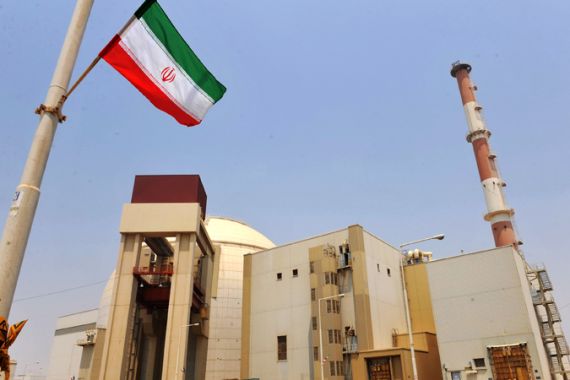Iran ‘a lot to do’ to finish nuclear reactor
UN nuclear agency says Tehran is some way from completing Arak facility, which could produce plutonium for use in bomb.

The leader of the UN’s nuclear authority says Iran has “quite a lot to do” to complete a nuclear reactor which is of deep concern to the West and which formed a central sticking point in negotiations to lift sanctions.
Yukiya Amano, the director general of the International Atomic Energy Agency, also told the Reuters news agency on Wednesday that he had seen no “radical” change in Iran’s nuclear activities since Hassan Rouhani became president three months ago.
Keep reading
list of 4 itemsTurtles swimming to extinction in Malaysia as male hatchlings feel heat
Could shipping containers be the answer to Ghana’s housing crisis?
Thousands protest against over-tourism in Spain’s Canary Islands
Amano said Iran still had “quite a lot to do” in order to complete the Arak research reactor, a plant which is of deep concern to the West as it can produce potential bomb material once it is operating.
The heavy water reactor produces plutonium as a byproduct – a substance that has few civilian applications and can be used to build a nuclear bomb. Iran says the reactor will produce isotopes for medical and civilian purposes.
He added Tehran was continuing its most sensitive nuclear activity – enrichment of uranium to a fissile concentration of 20 percent.
Sanctions regime
Iran insists its nuclear programme is for civilian use but Western nations, suspecting Tehran is trying to develop a nuclear bomb, have imposed crippling sanctions.
Amanao’s visit to Tehran on Tuesday came days after John Kerry, the US secretary of state, said that world powers had moved closer towards a deal with Iran over its nuclear programme. A deal was to pave the way for easing sanctions imposed by the US and the European Union.
Kerry, however, added that the US continued to be sceptical of the country willingness to act.
The US and its allies narrowed their differences with Tehran after three days of intense diplomatic efforts in Geneva but failed to produce a breakthrough in the decade-long dispute.
France – one of the five permanent members of the UN security Council involved in the talks, along with Germany – said it believed the proposal by the six world powers did not adequately neutralise the risk of Iran making an atom bomb.
Mohammad Javad Zarif, the Iranian foreign minister, said an agreement that would open the door to a resolution of the nuclear standoff was possible if negotiators exerted the maximum efforts.